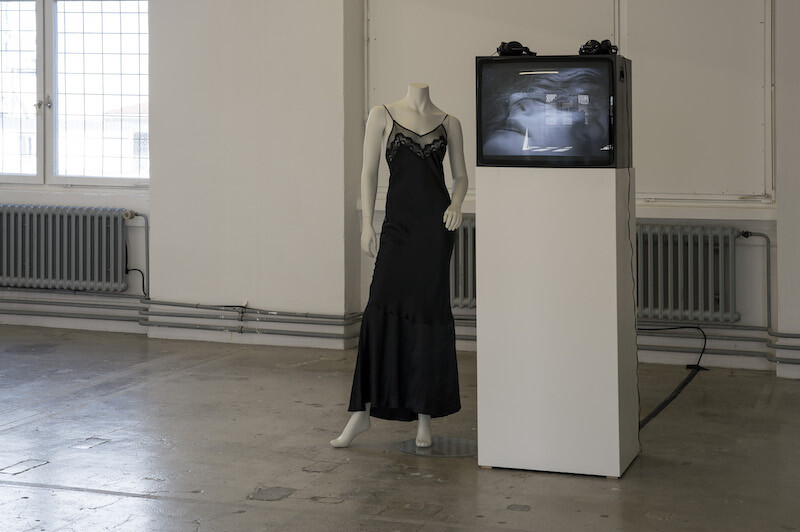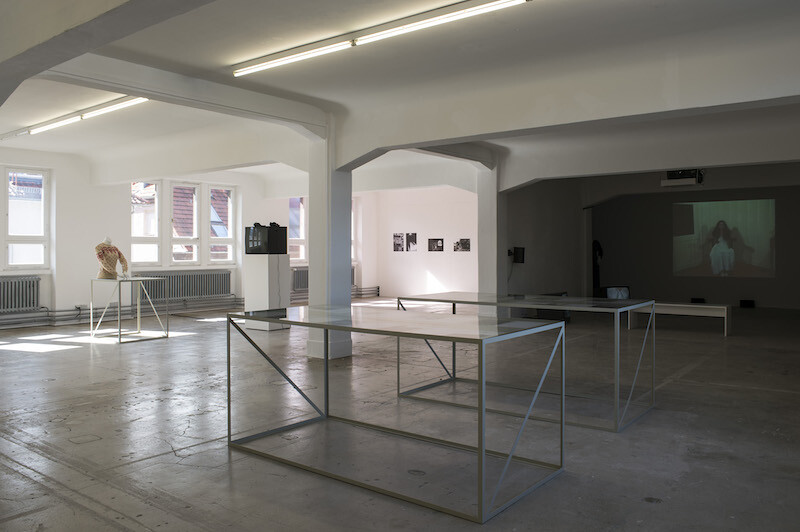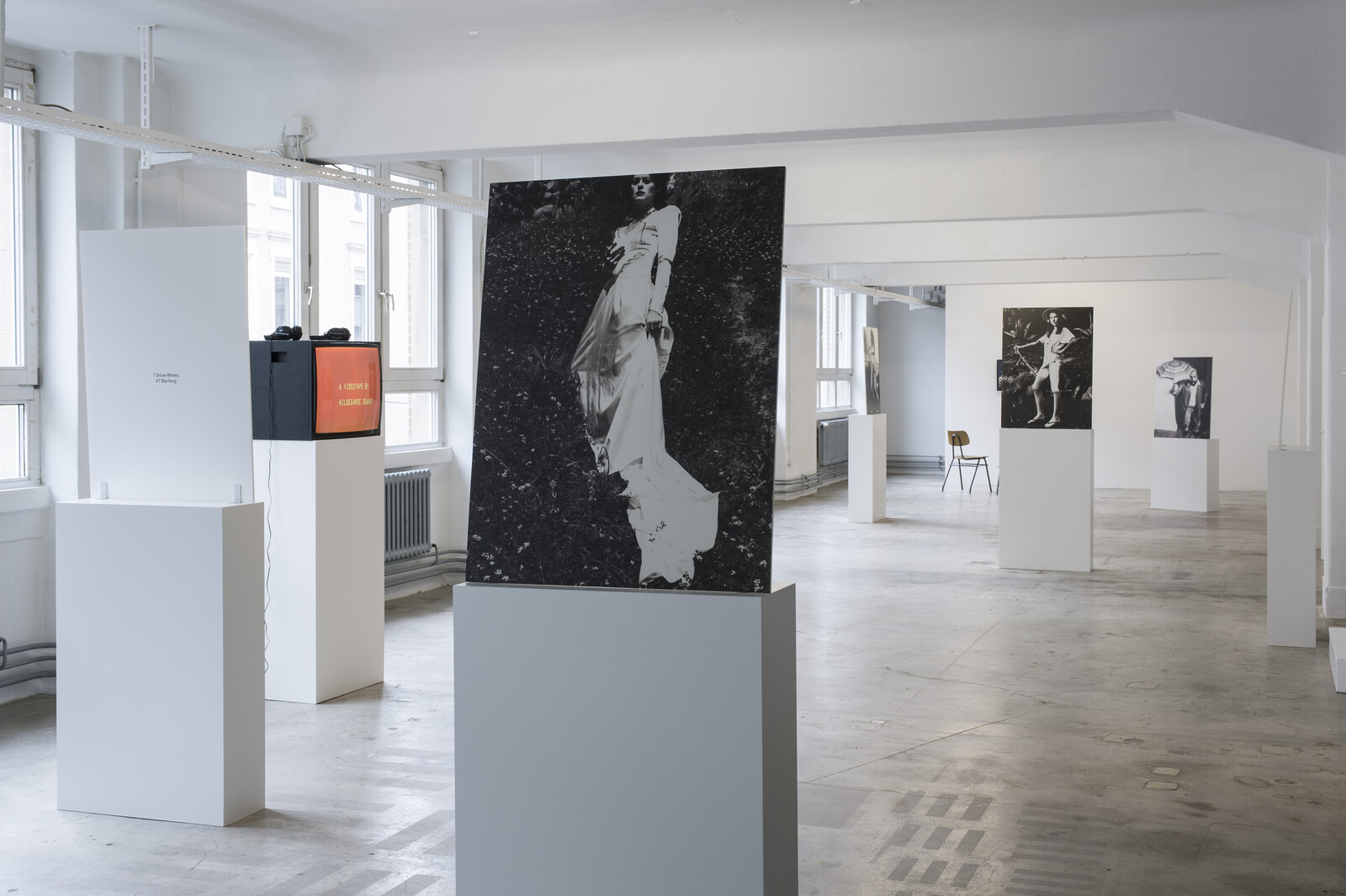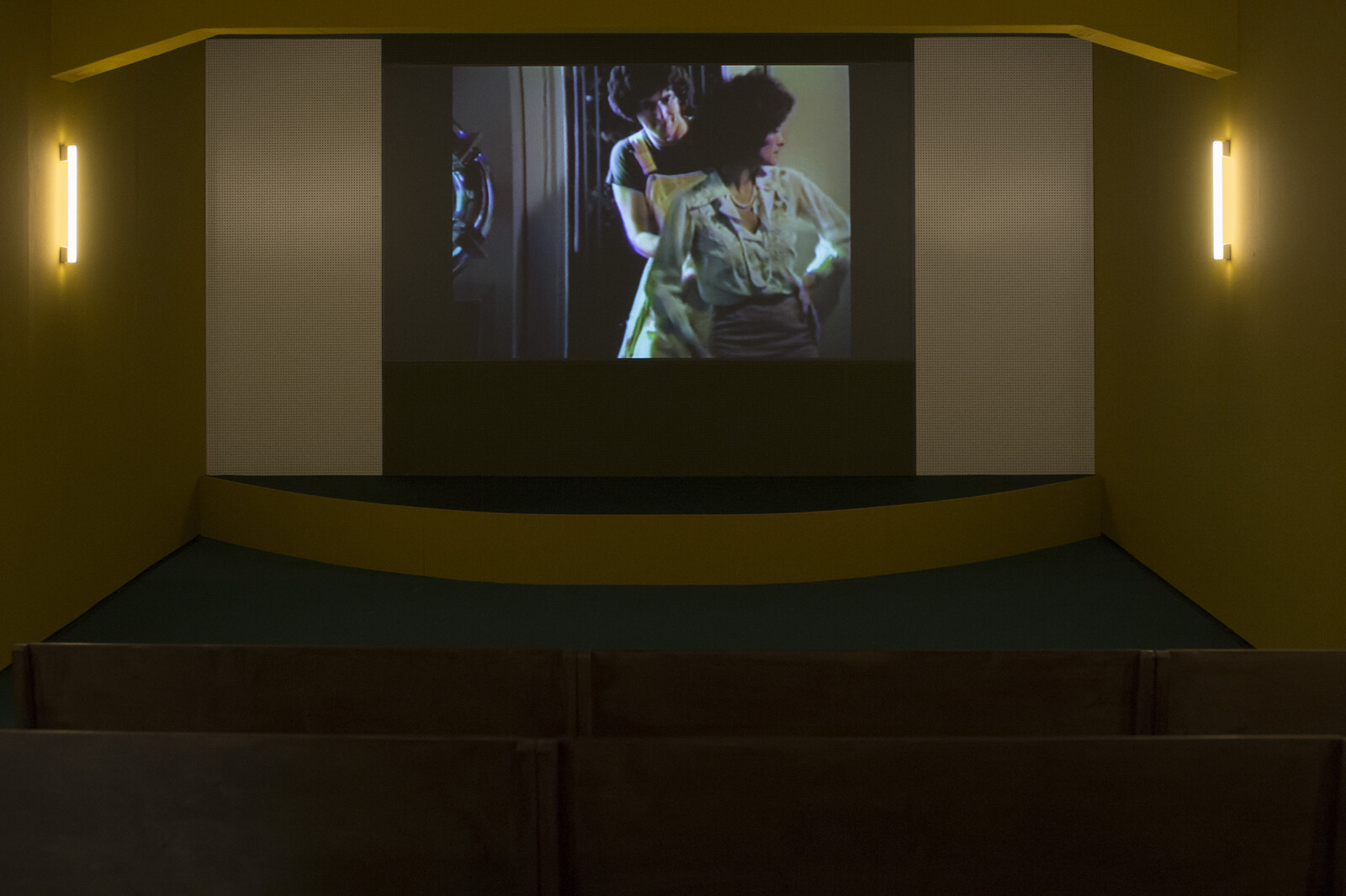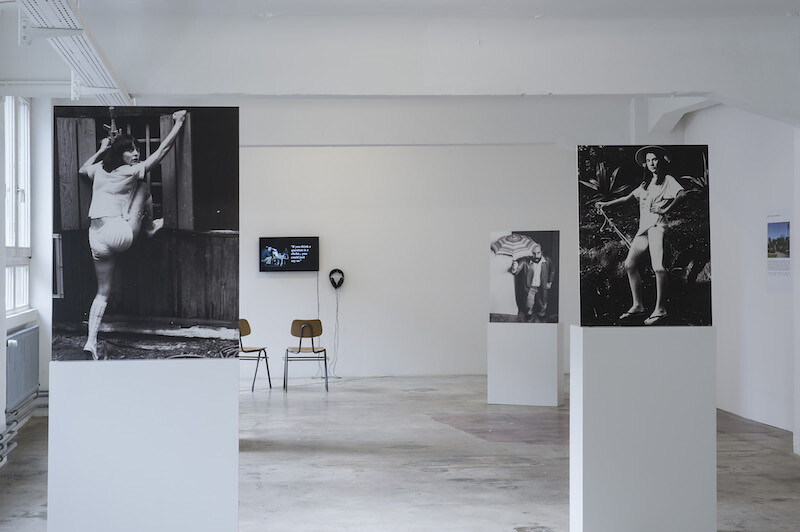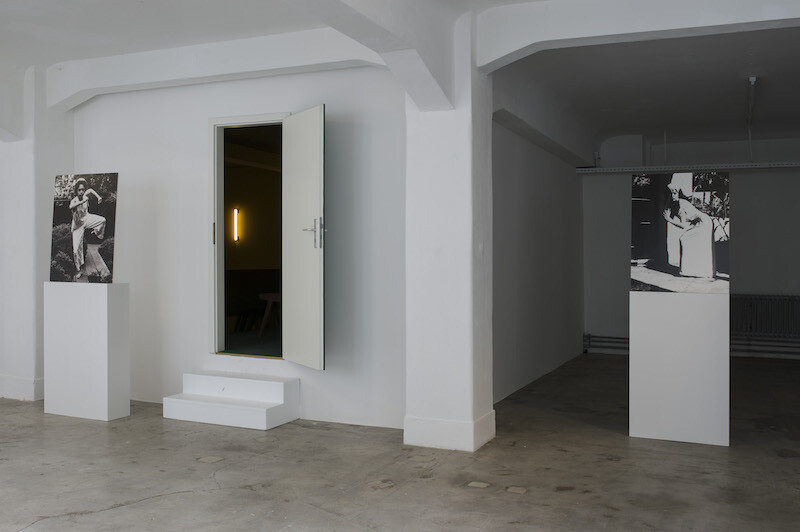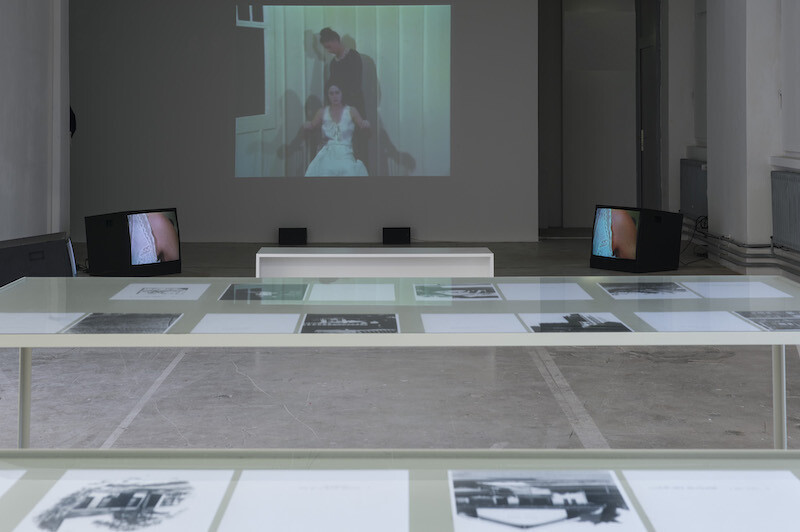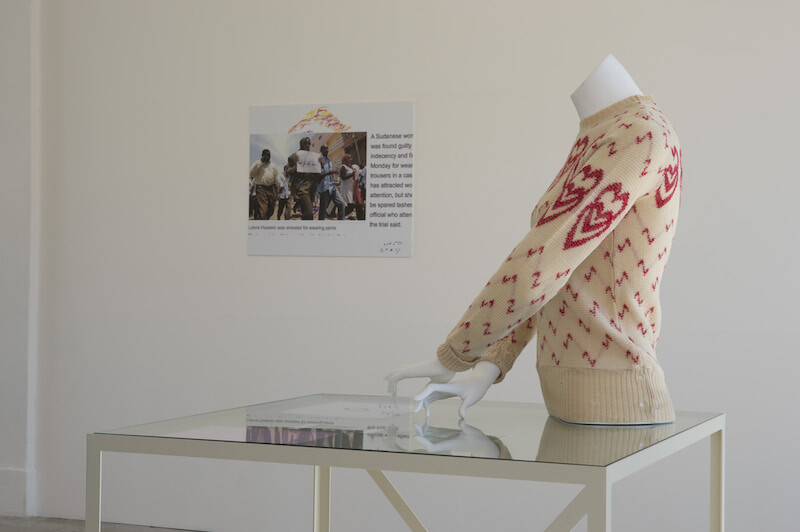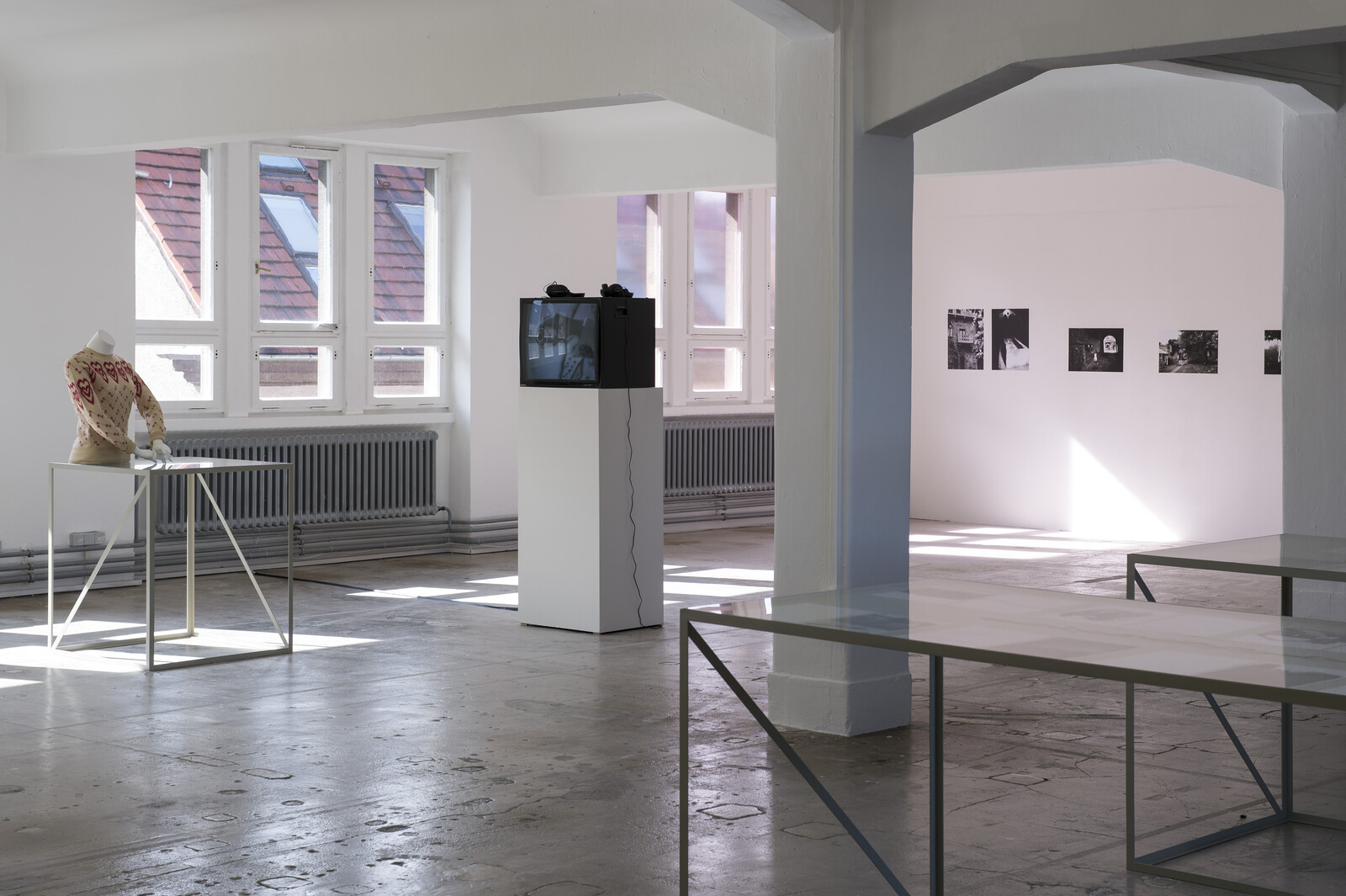As respite from the dark clouds that have lately been gathering over women’s heads in the United States—most recently in the announcement of plans to restrict women’s protection from workplace harassment and access to birth control—perhaps a little comic relief is in order. One contender for the role of feminist humorist is Los Angeles-based conceptual artist Hildegarde Duane. Her tongue-in-cheek brand of humor, exacted over four decades, punctures the conventional narratives about women and female sexuality that suffuse American popular culture and media and are now shaping government policy.
“Western Woman” at Künstlerhaus Stuttgart is Duane’s first solo exhibition in Europe. Spread over two floors of the airy, sun-drenched former suitcase factory, the exhibition consists of fifteen pieces curated by Duane, Steven Cairns, and Fatima Hellberg. The works range from large-format prints (such as Seven Snow Whites, 1981) and framed texts and photography (Marilyn Monroe - 14 Stations, 1982)—displayed in glass cases and vitrines—to short videos such as the one-minute Down with Cocaine (1983) and the sixteen-minute Canelo (2008-2016) that play either on monitors with headphones or in small curtained rooms. Perhaps intending to stress either the timelessness of her preoccupations or an ongoing dialog with her own work, the curators chose to intermingle works from different eras and different mediums: recent prints and framed photographs appear alongside videos and films from the late 1970s and early 1980s.
Duane’s practice has its roots in Southern California, where she began to work as an artist in the mid-1970s after earning a Ph.D. in Art History from Harvard. In Los Angeles Duane found a home at the Long Beach Museum of Art, an institution that nurtured artists who, like her, were interested in experimenting with new mediums and making film and video installation. Duane has worked with such artists as David Lamelas (one of their collaborations is featured in the show, G.U.N., 1997) and Ilene Segalove, creating photography series and short films that used ironic language and visual gags to spoof the media—from news interviews to public education films to commercials and sitcoms—and to question the gendered stereotypes and archetypes represented in fairy tales and popular culture.
Pink Slip (1983) represents the best of Duane’s subversive humor. Playing on a loop, together with the one-minute Silk (1977), in a room separated from the main gallery by a curtain, the seven-minute video features an office executive, played by Duane, who initiates an affair with a window cleaner, played by Harold Ramis, one of the Ghostbusters (1984). The video pokes fun at the conventions of porn films and Hollywood corporate culture and it’s hard not to laugh at the image of a wild-haired Duane performing a mating ritual in pearls, silk blouse, and houndstooth skirt. In a dance worthy of Salome, she sways her hips to a soundtrack redolent of the era’s sitcoms; after being fired over the phone, she simply traipses out the window to join her lover and venture into a world in which liberation from the male-dominated corporate world is imaginable and in which female sexual desire has equal footing with the male counterpart.
More ironic in tone is the piece that dominates the first floor of the exhibition, “Seven Snow Whites” (1981), a series of black-and-white portraits of seven women. In a playful challenge to the iconic image of Snow White as a pale-skinned white beauty, the group includes women of diverse ethnic ancestry. Each of the unframed, large-format photographs is placed like an icon on its own waist-high, white pedestal. According to the accompanying wall text—written in a jokey, Hollywood gangster vernacular—the women have formed an exclusive all-girl gang to combat the “pale blondes.” Their chilly gazes and highly staged poses anticipate the sort of tamed, “girl power” feminism that emerged in American popular culture in the late 1980s and early 1990s. The seven Snow Whites are a particular sort of girl-gang: attractive young women with the time and means to nurture their individual personas.
Duane’s work is as biting as it is playful, turning media-produced images or stereotypes on their heads. There is nonetheless a vintage feel to the brand of feminism put forward by “Western Woman,” based in American, white middle-class culture and centered on sexuality and individual self-expression. Perhaps this is because the curators chose to feature work predominately from the late 1970s and early 1980s, distancing it from current preoccupations in the feminist discourse, namely towards inclusivity (especially as pertaining to lower income, immigrant, non-white, gay, and transgender women) and the shift away from individual liberation towards an emphasis on structural inequalities (unequal pay, lack of access to child care, and underrepresentation in institutions of power) and other forms of oppression (sexual discrimination, harassment, and violence). These limitations aside, “Western Woman” brings a welcome spirit of lightness to difficult, politically fraught themes like female desire and gendered hierarchies. Who says feminists can’t be funny?

